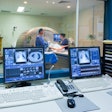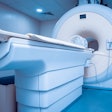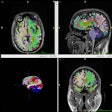SAN FRANCISCO – Daily adaptive recontouring during MR-guided radiation therapy (MRgRT) improves prostate treatment outcomes -- particularly "urinary bother," according to a presentation delivered September 29 at the American Society for Radiation Oncology (ASTRO) meeting.
"Daily online adaptive recontouring is associated with clinically meaningful benefit -- that is, less decline -- in patient-reported … quality of life," said presenter William Hall, MD, of the Medical College of Wisconsin in Milwaukee. The findings Hall shared were published September 1 in the International Journal of Radiation Oncology · Biology · Physics.
 William Hall, MD
William Hall, MD
Use of adaptive radiation therapy (RT) -- that is, RT that fine-tunes the radiation dose and treatment plan over the course of treatment to account for changes in the patient's anatomy and tumor position -- is increasing, Hall said, although not much data exist regarding patient reported outcomes (PROs), he noted. To address this knowledge gap, Hall and colleagues conducted a study that collected PRO data and compared two different treatment strategies in individuals undergoing MR-guided radiation therapy (MRgRT) for prostate cancer, working under the hypothesis that daily adaptive recontouring would improve PROs for urinary and bowel symptoms.
The study included data from men who participated in the Multiple OutcoMe EvaluatioN of radiation Therapy Using the MR-linac Study (MOMENTUM) trial. The research cohort consisted of 1,373 patients who underwent treatment for prostate cancer using five fraction stereotactic ablative body radiation (SABR) between May 2019 and July 2024. Two different treatment techniques were used: one called adapt to shape (ATS) -- which consisted of daily MRI-guided recontouring of normal structures (n = 1,054) -- and another called adapt to position (ATP), which did not include this daily recontouring (n = 319) (MRI recontouring uses the modality's soft-tissue contrast capability to define the contour of organs at risk during image-guided therapies such as RT.) All study participants were unaware of which treatment strategy they experienced.
Median patient age was 71, median prostate-specific antigen (PSA) value was 7.76 ng/mL, and 93% were categorized as intermediate National Comprensive Cancer Network (NCCN) risk. Of the total patient cohort, 16% received hormonal therapy, and 1,181 (86%) had patient reported outcome scores available. Study participants completed the EORTC QLQ C-30 and the prostate-specific QLQ PR-25 questionnaires to assess their quality of life at baseline and at three months, six months, 12 months, and 24 months post-treatment.
Overall, Hall's group found that patients who did not have daily recontouring reported higher scores on the questionnaires for urinary symptoms at three, six, and 12 months following MRgRT (higher scores indicate worse symptom acuity). Bowel symptoms showed no significant differences between the two techniques.
PRO scores for MRgRT treatment by symptoms, with higher scores equal to worse symptom acuity | ||
Symptom | Without daily adaptation | With daily adaptation |
Urinary symptoms | ||
| 3 months | 7.7 | 2.2 |
| 6 months | 6.6 | 3 |
| 12 months | 8.8 | 2.8 |
| 24 months | 5.9 | 1.6 |
Constipation | ||
| 3 months | 3.4 | 1.2 |
| 6 months | 2.8 | -- |
| 12 months | 1.3 | 0.4 |
| 24 months | 1 | 1.2 |
Bowel symptoms | ||
| 3 months | 3 | 1.5 |
| 6 months | 3.4 | 2.1 |
| 12 months | 3.9 | 2.6 |
| 24 months | 3.2 | 3.5 |
Diarrhea | ||
| 3 months | 4.2 | 2.6 |
| 6 months | 3.2 | 3.7 |
| 12 months | 2.4 | 2.9 |
| 24 months | 1.2 | 2.6 |
"Patients with prostate cancer treated with SABR who underwent daily MRI-guided online adaptive recontouring had a statistically significant lower increase of PRO urinary symptoms -- that is, less urinary bother -- compared to those without daily recontouring," Hall said.
In fact, the study data he presented are "some of the most compelling evidence to date of the value of daily online adaptive recontouring for patients with prostate cancer," he concluded.


.fFmgij6Hin.png?auto=compress%2Cformat&fit=crop&h=100&q=70&w=100)
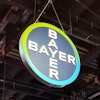

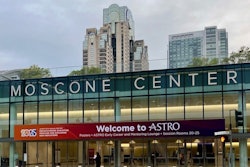
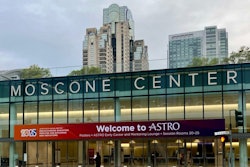
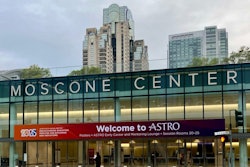
.fFmgij6Hin.png?auto=compress%2Cformat&fit=crop&h=167&q=70&w=250)




